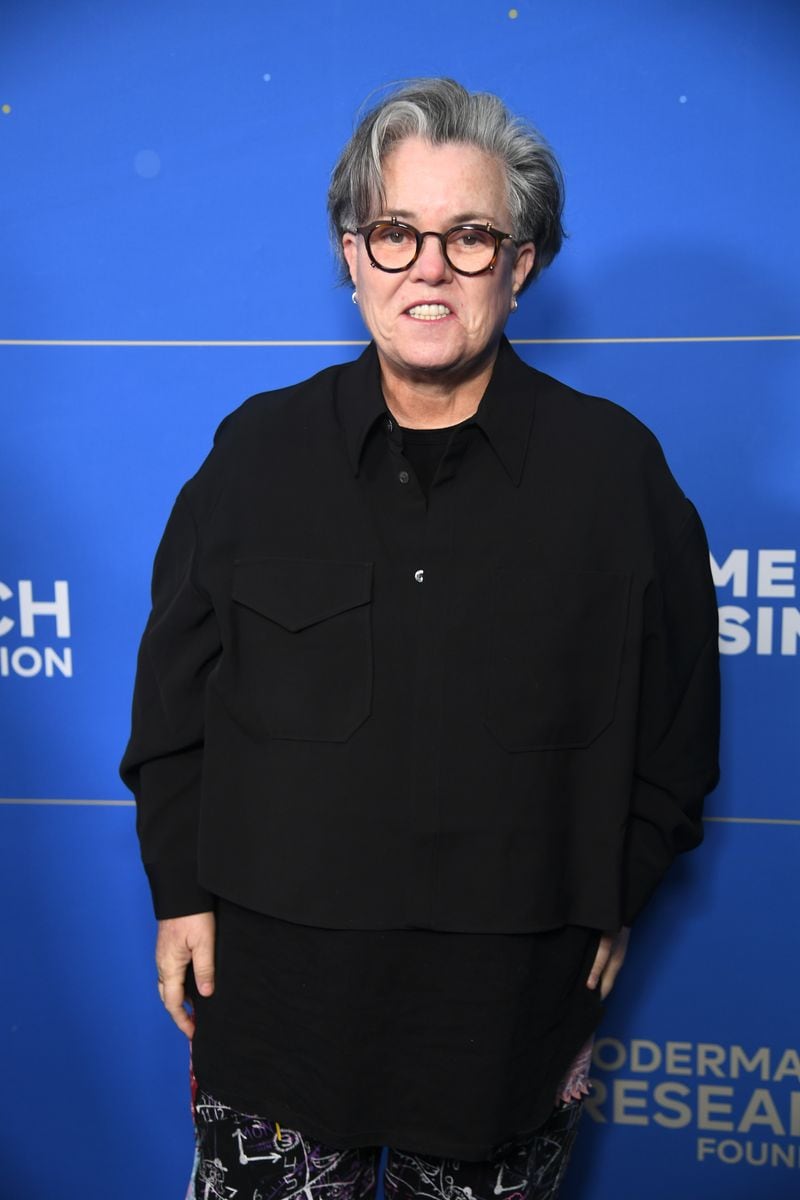Rosie O'Donnell is ready to share a part of her and her 12-year-old child, Clay's story with the world. The comedian and mother of 5 adopted Clay, who identifies as nonbinary and is autistic, with her second wife, Michelle Rounds, in 2013. Rounds died by suicide in 2017 following their 2015 divorce.
O'Donnell has a new documentary, Unleashing Hope: The Power of Service Dogs for Children With Autism, out on Hulu on April 22. In an interview with PEOPLE, she opened up about her and Clay's life-changing addition to the family, calling their old life "very isolating and very lonely."
Clay liked to be alone, would spend their time online, drawing, and rarely communicated, unless it was about their favorite show. Rosie was concerned—especially when their drawings started getting dark.
"I was afraid because Clay's drawings were getting darker, and some of their thoughts were scaring me," she told the outlet. "Some of their pictures had bloody knives and talk of violence."
Then Lyle Menendez, yes, that Lyle Menendez, reached out after Rosie voiced her support for him and his brother's freedom.
After visiting him in prison, she learned about Guide Dogs of America, a service dog program that pairs inmates with a dog in training that will eventually be matched with the visually impaired, veterans, and families of autistic children—free of charge.
After 10 days of training, she connected with other parents of autistic kids, and two weeks later, they brought Kuma, a black lab, home. "We’re going to go save this kid. Let’s go,'" O'Donnell remembered telling the professional pooch.
With Kuma by Clay’s side, they began doing things they had never done before, like going to grocery stores, walking through Ireland, and even going to restaurants. Before Kuma, Clay, who suffers from ARFID (Avoid Resistance Food Intake Disorder), would only "eat six things," but with the pooch on her lap, she was willing to go and have a meal with her mom.
There was a darkness and kind of a loneliness that is gone, and I credit the dog with that,” Rosie says. “To be able to go for a walk and talk—not just about Battle for Dream Island, but about life and feelings—was huge.”
It's something Clay has noticed, too. O'Donnell says the 12-year-old told her, "'Mom, it's better here.' They said, 'It's calmer, and you get to be a real person.'"
,type=downsize)
